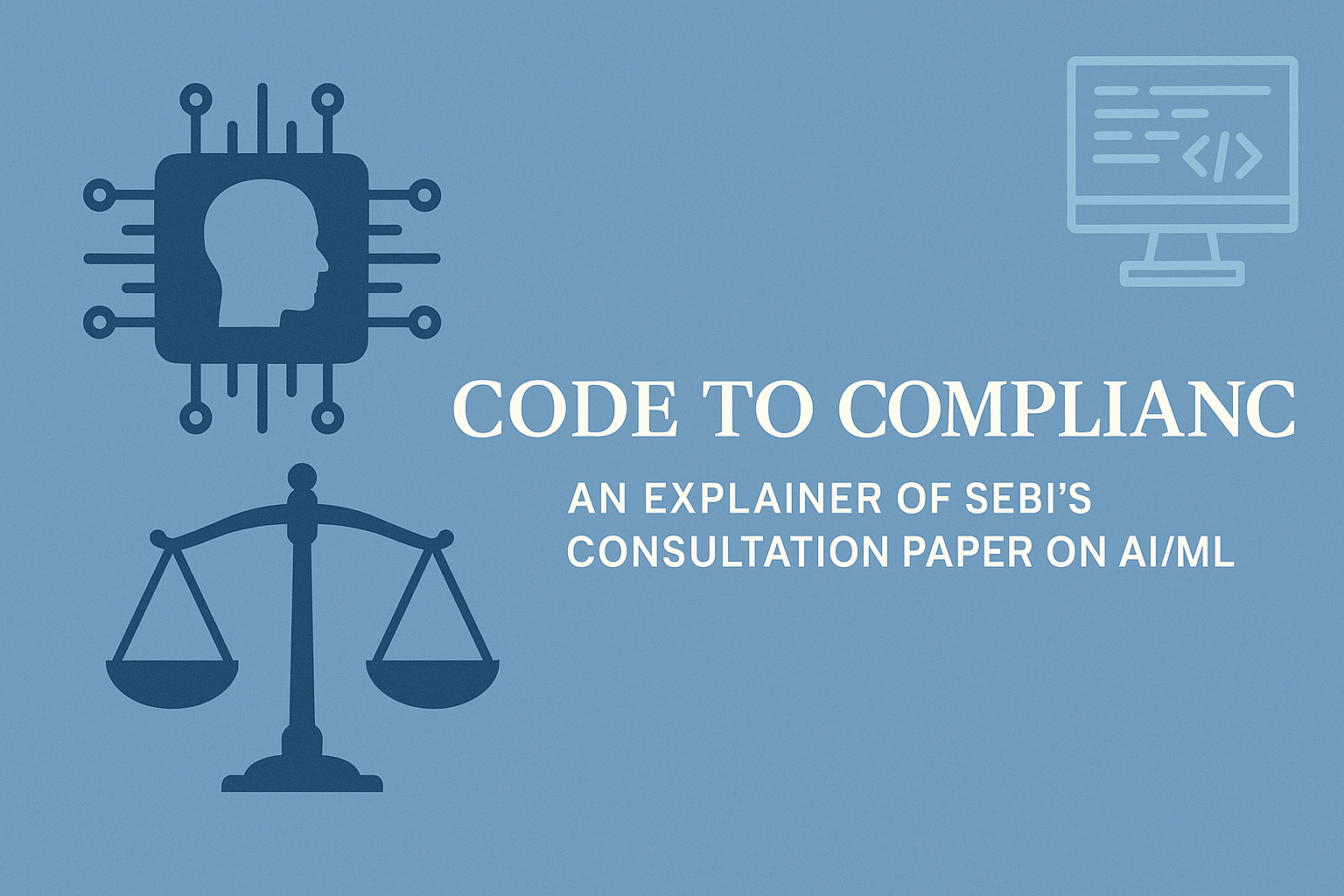|
Powered by AltAlpha AI
|
Anushka Rohilla is a 3rd-year law student at NLU Jodhpur
The caution advanced by our Finance Minister Sitharaman about giving away of financial solutions and advise on social media platforms by unregistered individuals, is not without merit. The Regulation 3a of SEBI (Investment Advisors) Regulations, 2013 (“IA Regulations”) stipulate within itself “that no person shall act as an investment adviser or hold itself out as an investment adviser unless he has obtained a certificate of registration from the Board.”[1] Despite this, there has been an ever-increasing trend of fake apps or fraudulent individuals providing unsolicited stock tips on how to manage money and calling themselves “finfluencers.”
What do Finfluencers do?
This can be assessed through statement of SEBI Chairperson’s statement: “We respect freedom of speech. But if it crosses a line, and becomes an enticement, entrapment and fraud, then we have a problem with it.”
While there might be instances of individuals giving useful and good advice about financial information, this is only a small fraction and most of these self-styled financial gurus promote trading strategies without a history of experience in the financial or investment field, and without confirming if they have knowledge of the market. They call themselves ‘finfluencers’, making believe that they are the only way to manage people’s money. This happens because there are no laid down qualifications dictating who can give financial advice online. They prey on the desperation of the consumers who want a best Demat Account or an alternative Fixed Deposit to get better returns. Such finfluencers are driven by the sole motive to earn money through commission from social media platforms and the market whose stalks they talk up or down. An instance that clarifies this over the margin charging of fee is when in October 2023, SEBI asked Md. Nasir to refund Rs. 17.2 crore which he collected from the budding traders he claimed to have trained on how to generate “assured returns”. This refund has been demanded because while Md. Nasir was allegedly busy training these traders, “Baap of Charts,” of which Nasir is proprietor, was already facing losses worth of Rs. 3 crores in stock market for the year of Jan 2021-July 2023. This demonstrates the kind of control the “finfluencers” have over their target audience that they are able to offset their losses through the pockets of other people. And this, evidently, is very dangerous.
SEBI – Advancing in the Right Direction
Amid this growing number of misplaced advices given by finfluencers, SEBI’s decision to come out with regulations and ways to control those who sell the utopian idea of a crorepati on social media seems right. The ever-rising cases of frauds undertaken by these finfluencers, leading to people facing losses by relying on their advice, call for a regulation that would treat such inducement as a fraudulent and misleading activity while also discouraging the regulated entities of SEBI to deal with these unregistered finfluencers. This can be checked with the registration of that adviser with SEBI. SEBI recognizes that there are cases of some expert people with actual knowledge providing genuine advice on social media platform, but also realizes that the same can be done even when they are registered with SEBI. This will help not only in clamping down on the number of fraudsters, protecting people from false information, but also allowing those who want to help to continue doing so in a more regulated and a legal manner while raising the confidence of people in these advisers. The need of this regulation can be further stressed by the harms that are caused to the public because of the false information imparted by the finfluencers, besides financial harms like loss in stock market.
Instances to Highlight Urgency
Depicting the harmful impact of social media on markets which are sensitive is an event that led to sudden increase in the value of video game retailer entity called GameStop Corp. This has happened because of memes circulating on online platforms that hyped the stocks up, and when this was over, the value was once again back to normal.
An activity that has been in trend is when some finfluencers, convince their target audience to buy certain stocks owned by them, which were not necessarily doing well earlier, to soar the prices of these stocks, allowing these finfluencers to dump their stocks through their sale at a price that is inflated artificially. Such alleged manipulation of stock prices was seen by actors like Arshad Warsi and certain other promoters of Sadhna Broadcast. They were accused of uploading videos on YouTube to attract investment in shares which claimed to have been consisting of false information.
Misinformation: A Chaos
This providing of false information borne out of personal interests directly contradicts Article 19 of ICCPR which restricts right to spread information and ideas. The essence of this Article is reflected in the proclamation of UN Human Rights Committee which provides a right not to have one’s opinion manipulated unknowingly or influenced involuntarily and, this is exactly what these finfluencers engage in. The naïve people on internet, keen for some sort of free advice about management of their money, fall prey to these finfluencers who are like hungry wolves with no evidence of any expertise. Such misinformation adds salt to injury by feeding polarisation and eroding trust even in the investment advisers who are registered with SEBI (Registered Investment Advisors or RIA). Therefore, bringing all the advisers under the umbrella of SEBI will not only uphold this trust but also promote social welfare in the sense that then there would be a guarantee that an innocent person is not subjected to financial advices dependent entirely on the whims of unregistered finfluencers. The registered advisers are professionals with an obligation to comply with code of conduct, disclosure norms and minimum qualifications and experience requirements. They can then offer, and must offer, unbiased and personalized advice based on their financial goals, risk profile and investment preferences.
Recommendations and Conclusion
Introduction of such guidelines will allow SEBI to work with “Advertising Standards Council of India” (ASCI), RBI, and MeitY to structure a comprehensive framework to strengthen the reliability of the content. The only protection that currently is in process is the ASCI guidelines which mandatorily require influencers on social media to term their content related to companies as “advertisement”, but evidently, this is just a lip service, because ASCI can only report the violators and not punish them.[2] Due to this, even SEBI has made it clear that entities registered under it like brokers and mutual funds won’t be allowed to advertise with the finfluencers not registered.
The step by SEBI will place a very much required limit on what finance influencers can talk about and what should be avoided as the conversations happening right now between them and the audience they target are devoid of any legal aspect. These guidelines will introduce SEBI in the realm of branded content, driven by finfluencers, and hence will elevate it from being just a promotional tool to a more awareness-focused and comprehensive marketing channel. The promotional conversations happening then, would be much more transparent and accurate. It would help organize the much disorganized network of advice giving, benefitting the general public at large.
While this is being done, an amendment under IA Regulations is recommended, especially for definitions of “investment advice” and “investment adviser”, as currently, they exclude “advice given through newspapers, magazines, any electronic or broadcasting or telecommunications medium”. Hence, there is no coverage for finfluencers whose advice is accessible to public. Bringing them under this umbrella and mandating requirements provided for RIA could eradicate the unregistered finfluencers, but this has to be coupled with distinguishing “general financial advice” from “regulated financial advice”. This would allow people to engage in general discussions related to market trends without harsh restrictions, while also binding the finfluencers to laid-down standards once they get regulated, and possess a license issued by SEBI, ensuring their credibility.
To conclude, this step of SEBI is a much awaited action amidst the chaos caused by fraudsters impersonating investment advisers, and now that this step has been taken, it has aroused a wave of curiosity which will be calmed once these guidelines are in place and have put an end to the dangers posed by fake apps and fraudulent individuals calling themselves “finfluencers”.
[1] SEBI (Investment Advisers) Regulations, 2013, Reg. 3a
[2] Isheta T. Batra & Sherry Shukla, An Insight into ASCI Guidelines for Social Media Influencers, Mondaq (Oct. 18, 2023), https://www.mondaq.com/india/social-media/1361274/an-insight-into-asci-guidelines-for-social-media-influencers#:~:text=The%20Influencer%20Guidelines%20state%20that,product%20or%20create%20an%20advertisement.





